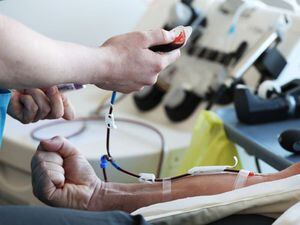New blood donation eligibility rules welcomed by Liberate
DISCRIMINATORY rules affecting those giving blood have been scrapped, meaning donors will no longer be asked if they are a man who has had sex with another male.

The new eligibility rules, which mean anyone who has had the same partner for the last three months will be able to donate, came into effect on World Blood Donor Day in the UK.
This removes the element of assessment that was established by previous population-based risks placing eligibility on individual circumstances such as health, travel and sexual behaviours which were deemed to pose a higher risk of sexual infection.
Instead, any individual who now attends to give blood – regardless of gender – will be asked if they have had sex and, if so, about their recent sexual behaviours.
Health & Social Care welcomed the steps taken to move towards a more individualised risk-based approach rather than the previous blanket restrictions and will follow these new guidelines now they have been introduced.
‘The new proposals are evidence-based and will maximise the numbers who can donate while ensuring our blood supply remains safe,’ a spokeswoman said.
Guernsey’s LGBTQ+ charity Liberate said it was about time that the rules and associated questioning were updated to be inclusive of everybody.
‘It’s a great step and anything that enables more people to donate safe blood is a good thing,’ CEO Ellie Jones said.
Oli Bailey-Davies, who hosts Liberate’s Pride events, tried to donate blood in the late 1990s and said he felt ashamed and ‘dirty’ when he was questioned and subsequently turned away.
‘I didn’t know the law at the time. I tried to donate blood and the whole experience was very upsetting, especially at a young age [18],’ he said.
‘It was unfair that the rules weren’t the same across the board and you were singled out because of your sexuality.’
People in the LGBTQ+ community, particularly gay men, are very aware of their sexual health status, he said.
‘I remember thinking that donating blood was not something that existed for me, solely because of the discriminatory nature of the rules.
‘We’ve spent the last 18 months dealing with Covid, trusting the science.
‘That wasn’t done in the 1980s when it came to sexual health. We were led by fear, so it’s about time we trust the science again when it comes to donating blood safely.’
n Any potential donors who would like further clarification can contact the Pathology Department at the Princess Elizabeth Hospital and discuss the guidelines confidentially in person or on the phone with one of the donor screening nurses.





